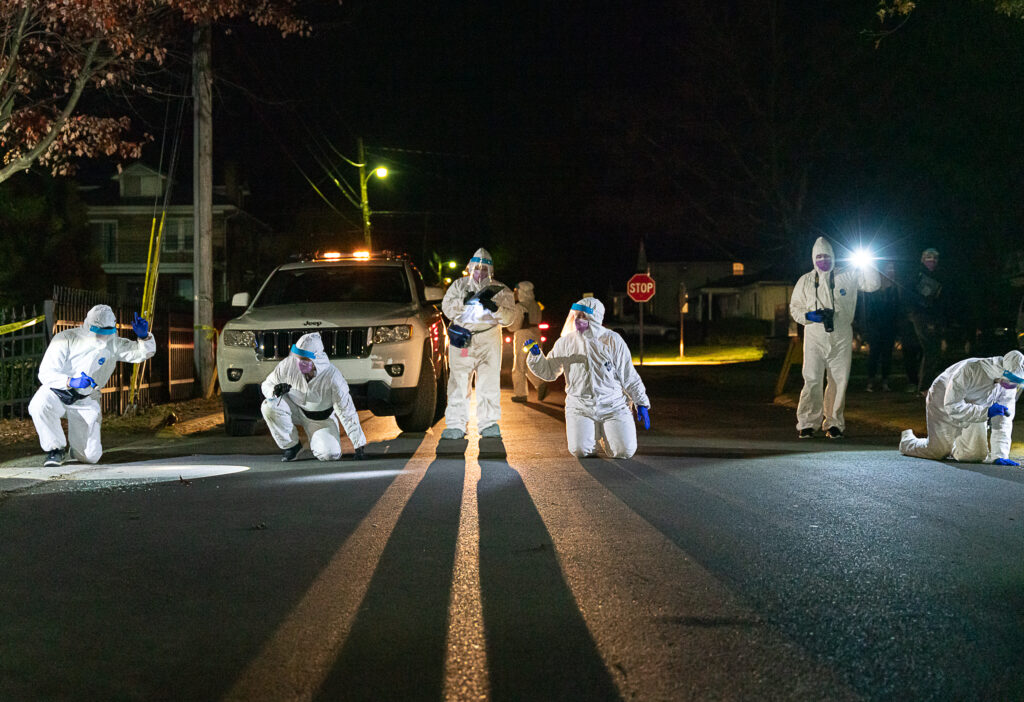WVU seniors experience processing a crime scene
Sometimes as a crime scene investigator or police officer, you have to wake up in the middle of the night, process a crime scene until dawn and then go to work.
“You better be awake, be alert, using your training and experience,” Professor Bob O’Brien said. “This is what we’re teaching them so they can bring that to the table in their job interview.”
On Wednesday night, seniors taking O’Brien’s crime scene investigation two class were called to a crime scene weeks in the making at 10 p.m.
O’Brien said he and his graduate students spent weeks making sure the crime scene was just the way it should be. Prior to coming to West Virginia University, he spent 29 years working for the Connecticut Forensic Science Labatory.
That experience allowed him to set up the crime scene with realistic blood patterns and bullet trajectories. It also has given him the experience to throw curve balls by hiding bullet casings — something that criminals sometimes do in real life.
“I make it very difficult,” O’Brien said. “This is where they should make their mistakes. Not when they are starting their careers.”
For nine hours — until 7 a.m. today — his students used all the skills they’ve learned while at West Virginia University, such as fingerprinting, documenting evidence and working as a team to try to figure out what happened.
After the long night, O’Brien’s class is at 8:30 a.m., and it will be in session.
The students have to work as a team and communicate to succeed, O’Brien said. The students also worked with West Virginia University Police to process the scene, which included four houses, two roads and two vehicles.
Tweet @WillDean_DP








